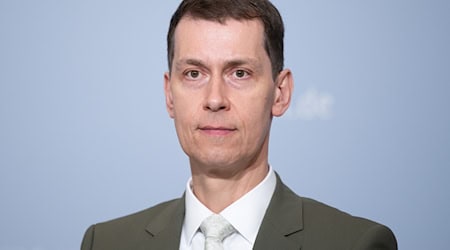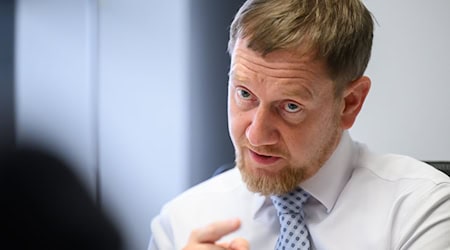Saxon EU politician Oliver Schenk (CDU) rejects the idea of centralizing responsibilities in the European Union. He told media representatives that it was not acceptable for the Commission to only negotiate with the governments of the federal states in future and for the regions to be left out. Europe would not become stronger if the regions were weakened.
Schenk: Europe's strength lies in the regions
"If you centralize structural policy, then you fail to recognize where Europe's strength and power actually lies. And that is on the ground, because you know best on the ground what things are necessary," emphasized Schenk, who previously headed the State Chancellery in Dresden and moved to the European Parliament last year as the leading CDU candidate in Saxony. There he is a member of the EPP group, the largest in the EU Parliament.
Only on the ground is it clear where the real problems lie, said Schenk. "That has always made us strong when regions are in competition with each other." The microelectronics cluster in Dresden would probably not have developed in this form if it had been controlled solely from Berlin. Rather, this was a conscious decision by the then Saxon government in the 1990s.
On Wednesday, the EU Commission will present the framework of its Multiannual Financial Framework (MFF). The budget plan determines how much the EU can spend and what the money will be used for over a period of seven years. The current MFF expires in 2027 and included around 1.1 trillion euros for areas such as climate protection, digital innovation, agriculture, research and regional development. In addition to competitiveness, the new plan will also focus more on defense and securing external borders.
Schenk fears disadvantages for Saxon agriculture
Schenk fears that Saxon agriculture could be at a disadvantage in the new funding period from 2028 because the EU wants to support small farming structures in particular in the future. This would put large-scale and "much more competitive, more efficient structures at a disadvantage". On average, a Saxon farm cultivates an area of around 138 hectares and is therefore twice as large as the average German farm.
According to Schenk, Saxony has benefited considerably from EU funding over the past three decades. Since 1990, around 20 billion euros have flowed into Saxony from Europe - 14 billion of which has been invested in infrastructure, urban renewal, company relocations, environmental protection measures or the expansion of the water supply, and six billion in agriculture. In 1990, Saxony's economic strength was 30 percent of the European average, today it is 92 to 95 percent.
However, the CDU politician believes that further support for Saxony is necessary. He argued that the Free State is particularly affected by the demographic development and adds value for the whole of Europe with its chip industry, for example. In order to attract companies such as TSMC, Saxony would have to provide considerable funds for the development of infrastructure, while the whole of Europe would ultimately benefit from the chips manufactured here.
Copyright 2025, dpa (www.dpa.de). All rights reserved










